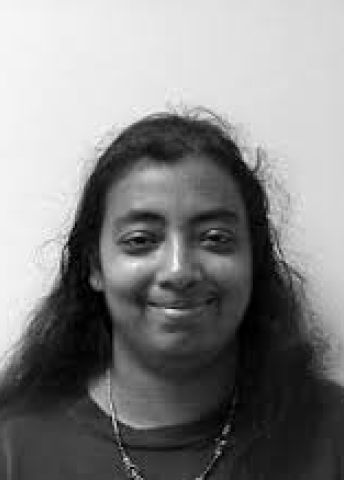
Program for mathematics 2016
Visting Professor
Nageswari Shanmugalingam
Professor at the University of Cincinnati, USA
Nominated by:
Linköping University
Visting Professor
Nageswari Shanmugalingam
Professor at the University of Cincinnati, USA
Nominated by:
Linköping University
Studying broken spaces
Nageswari Shanmugalingam is currently professor at the University of Cincinnati, USA. Thanks to a grant from the Knut and Alice Wallenberg Foundation, she will be a visiting professor at the Department of Mathematics, Linköping University, Sweden.
Many real physical phenomena can be described through mathematical models, which use differential equations to reflect the evolution of the systems. Some of the best known models include Newton’s laws of motion in classical mechanics, the Schrödinger equation of quantum physics, or the heat equation describing the distribution of heat over time.
At first such equations were studied in the familiar three dimensions, but were soon extended to more dimensions, followed by the analysis of more complicated geometric objects like surfaces or spaces, which are generalizations of surfaces to higher dimensions. This, in turn, led to the analysis of differential equations on non-smooth spaces, unbounded spaces, or spaces whose boundaries were difficult to analyze – like fractals. Fractals look as though their boundaries were broken into pieces and can have very irregular structures, like the surface of an eroded mountain, the shape of a coastline, a contour of a cloud, or that of a microbial colony.
Researching equations on such complicated multidimensional spaces is the goal of the project. One way to handle the difficulty caused by a fractal boundary is to map the problem onto a suitable space that has a more regular boundary. Similarly, a problem in an unbounded space may be easier to study if it is mapped onto a bounded space. The structures and the properties of the target spaces may be sufficiently similar to the structures and the properties of the original ones to allow the translation of the analysis of differential equations between them.
Nageswari Shanmugalingam is one of the pioneers in this field. Her expertise, combined with the Linköping group’s understanding of differential equations, has proven very successful. She has been the most frequent collaborator with the group since 2001.